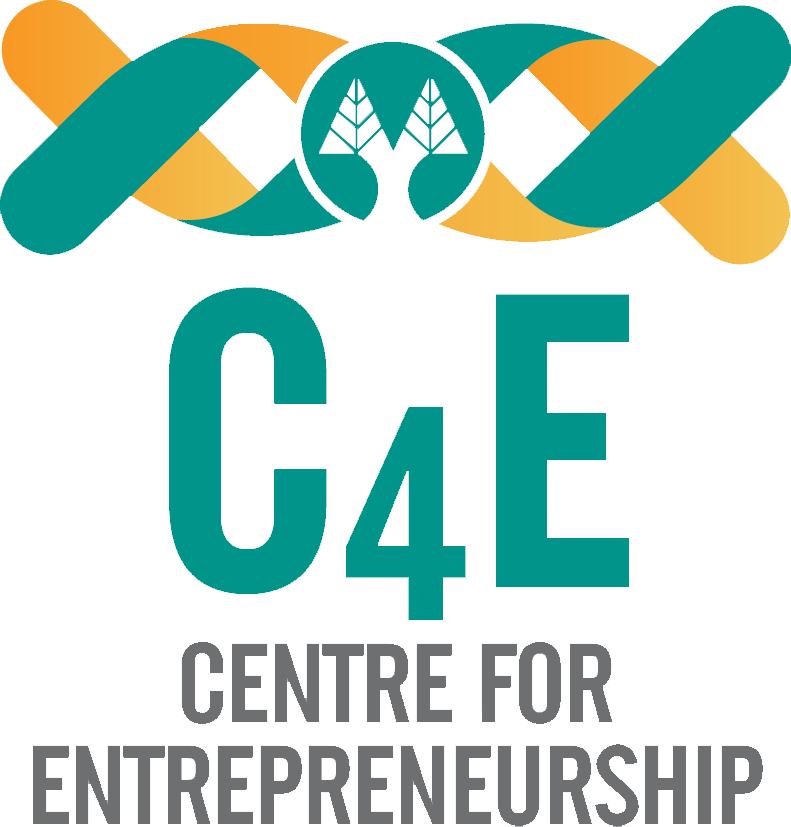CS683/KEP500: Technology Entrepreneurship
Contract
CS683/KEP500: Technology Entrepreneurship - Contract
Instructor: Dr. Marios D. Dikaiakos,
Professor
Teaching Assistant: Odysseas Economides
ECTS Credits: 8
Semester: Fall
Academic Year: 2019-2020
Course Level: Post-graduate.
Course Type: Restricted choice. Free Elective.
Programme of Study: Restricted choice for the M.Sc. in Computer Science and Ph.D. in Computer Science programs; Free Elective for students of Sciences, Engineering, and Humanities.
Prerequisites: None.
Language of instruction: English.
Online Forum: https://piazza.com/ucy.ac.cy/fall2019/cs683/home
Teaching Schedule: Three hours of lectures and one hour of recitation per week.
Teaching Assistant: Odysseas Economides
ECTS Credits: 8
Semester: Fall
Academic Year: 2019-2020
Course Level: Post-graduate.
Course Type: Restricted choice. Free Elective.
Programme of Study: Restricted choice for the M.Sc. in Computer Science and Ph.D. in Computer Science programs; Free Elective for students of Sciences, Engineering, and Humanities.
Prerequisites: None.
Language of instruction: English.
Online Forum: https://piazza.com/ucy.ac.cy/fall2019/cs683/home
Teaching Schedule: Three hours of lectures and one hour of recitation per week.
- Lectures:
- Monday, 16:30-19:30, Room 016, ΧΩΔ02.
- Recitation:
- Wednesday, 14:00-15:00, Room 007, ΧΩΔ02.
Objectives
Learning outcomes and skills
- Recognize and define key concepts and terminology related to entrepreneurship.
- Analyze and evaluate entrepreneurial ideas, especially for innovative products, processes or services based on advanced technologies or scientific inventions.
- Understand, describe and apply methodologies and tools for innovative entrepreneurship, such as the Disciplined Entrepreneurship Methodology, the Lean Product Methodology, and the Business Model Canvas.
- Understand Business Planning and create Business Plans.
- Define and apply techniques for market analysis, product design, value proposition definition, and customer acquisition.
- Explore and apply techniques for creative ideation and design of software applications, products and services, such as Design Thinking, Innovators’ Compass, and Sprint.
- Understand key issues regarding financing and ownership of start-ups.
- Analyse and apply pricing strategies for a product, process or service.
- Consider issues of Intellectual Property (IP) and IP protection.
- Understand the challenges of team formation and management.
- Use state-of-the-art collaboration, ideation and rapid prototyping tools.
- Prepare pitch-decks and present ideas in front of investors to attract funding.
Teaching and Learning Methods
Students will meet the expected learning outcomes through participation to lectures, invited talks, active participation to class discussions, reviewing videos, reading and writing assignments, and actual practice with innovation and entrepreneurship methodologies. The course comprises 3 hours of weekly lectures, 1 hour of recitation, reading and writing assignments, and a semester-long group project in entrepreneurship. Participation of lectures and recitation is obligatory.
In summary, the teaching and learning methods are the following:
- Participation to Lectures, where the main concepts and methodologies covered by the course are presented and critically appraised. Students are required to review and study the materials for each lecture, as defined in the Course Outline, and actively participate in class.
- Participation to Recitation, where the class will expand on topics covered in the Lectures, through open discussion, student presentations, and viewing and discussing of relevant online material.
- Participation to Guest Lectures and Seminars, which are part of the Series of Lectures in Innovation and Entrepreneurship (KEP101) of the Centre for Entrepreneurship, bringing to campus distinguished entrepreneurs and experts in various aspects of relevance to entrepreneurship.
- Reading and writing assignments: Students are assigned readings (books), for which they are required to compose a write-up. Also, students are expected to submit at least three write-ups after attending a selection of guest lectures.
- Group projects, where each team of students is expected to develop an idea with a strong exploitation potential through a business venture or a social enterprise. The teams are required to undertake all necessary activities to develop a strong business plan and prepare a final oral presentation to seek funding (Venture Capital pitch). The Group project comprise three deliverables: i)Written Midterm report. ii) Oral Presentation and iii) Written Final report.
Evaluation and Grading
Student progress is evaluated continuously through class participation and the assessmen of writing assignments and group project deliverables. The final grade is based on the following formula:- Writing Assignments (Guest Lecture write-ups and Essay):
- 15%
- Term Project Midterm Report:
- 25%
- Term Project Pitching Presentation:
- 30%
- Term Project Final Report:
- 30%
ECTS Analysis
- Class and Recitation participation: 4 hours per week for 13 weeks, totalling to 52 hours.
- Study and home: 2 hours per week for 14 weeks, totalling 28 hours.
- Write-ups: A total of 15 hours.
- Group project Midterm Report: 30 hours
- Final presentation: 30 hours.
- Group project Final Report: 50 hours
Bibliography
- Bill Aulet, “Disciplined Entrepreneurship.” Wiley, 2013.
- Dan Olsen, “The Lean Product Playbook. How to Innovate with Minimum Viable Products and Rapid Customer Feedback.” Wiley, 2015.
- Alexander Osterwalder and Yves Pigneur, “Business Model Generation.” Wiley, 2010.
Other instructions
- Κάθε φοιτητής δικαιούται να παρακολουθεί τις διαλέξεις και τα εργαστήρια χωρίς ενοχλήσεις και αδικαιολόγητες διακοπές. Παρακαλούνται λοιπόν όλοι να διαφυλάξουν το δικαίωμα αυτό, σεβόμενοι τον χρόνο ενάρξεως και λήξεως των μαθημάτων, την καθαριότητα των αμφιθεάτρων και των εργαστηριακών χώρων και γενικώς την ακαδημαϊκή ελευθερία.
- Plagiarism is strongly prohibited.
- You will not get any credit for late submissions. We will grant extensions only in the case of illness (with a doctor's note) or extraordinary circumstances. Please let us know ahead of time if illness or an extraordinary circumstance will cause you to submit a writeup or paper late, then you should discuss the matter with your instructor as soon as possible.
